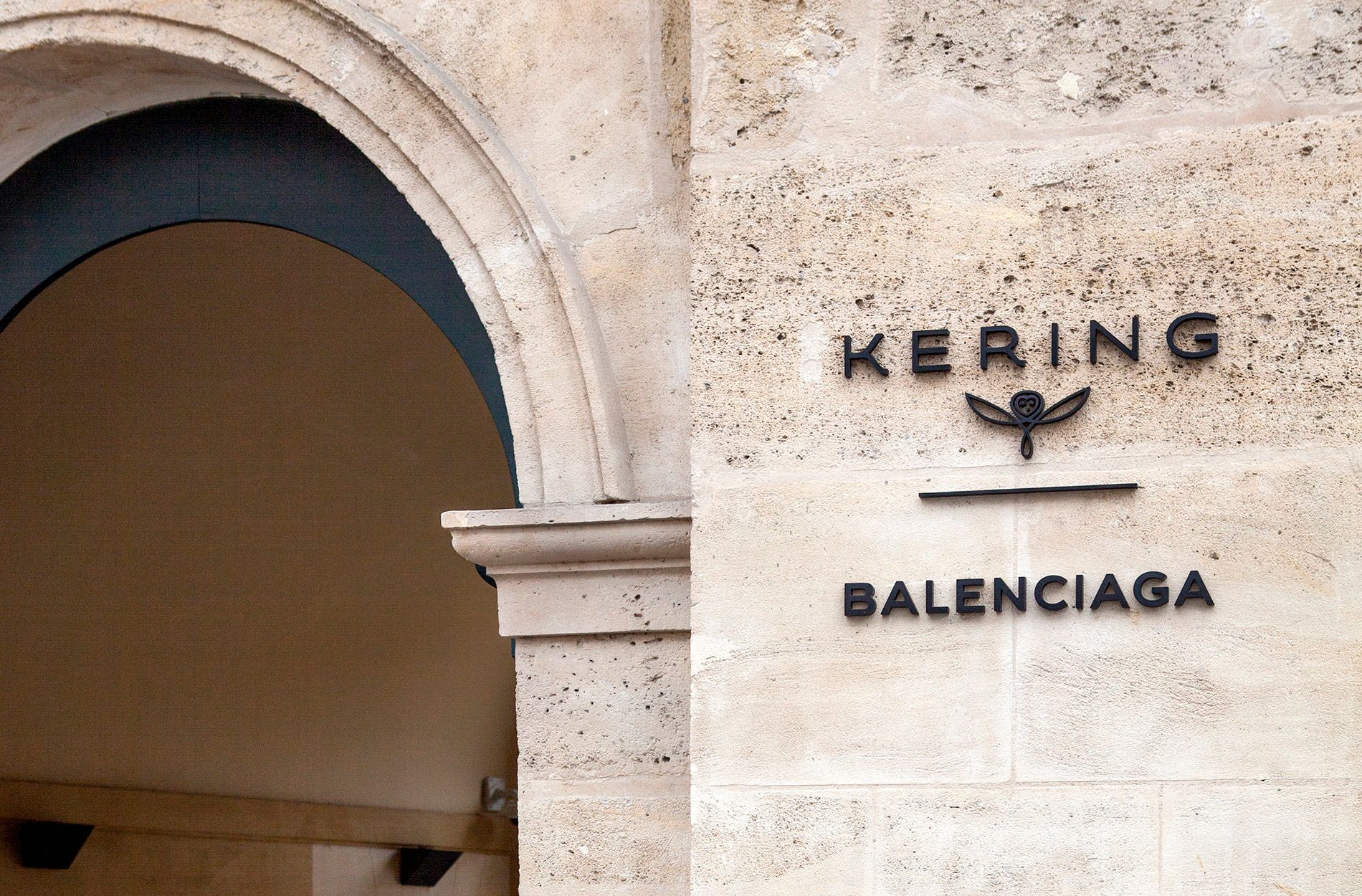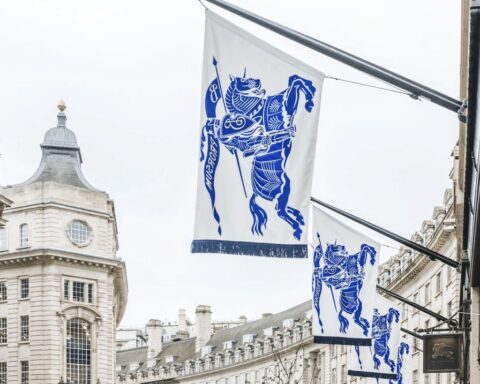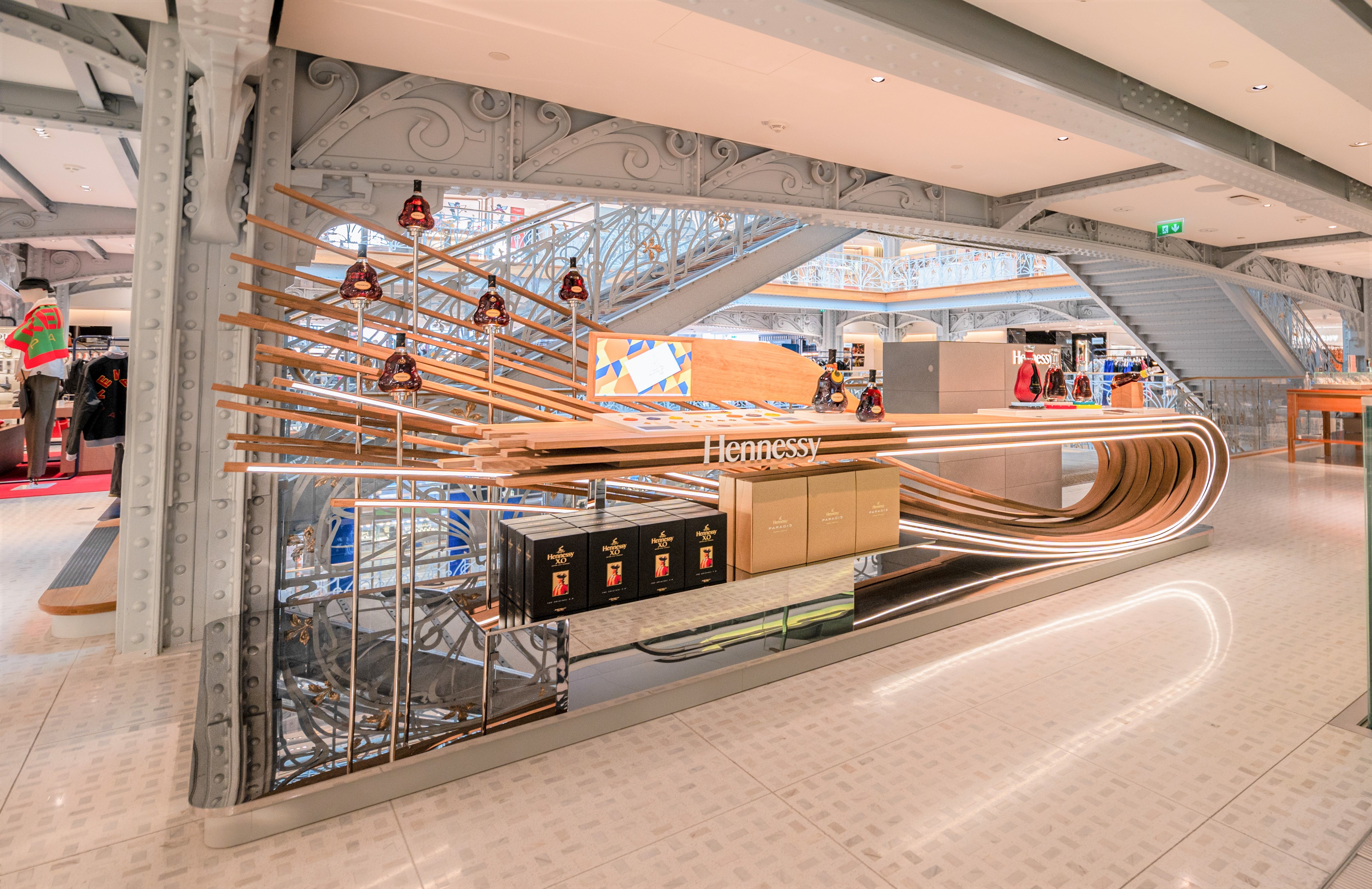Kering’s flagship company aims to “accelerate the transformation of the Italian luxury goods industry by integrating the challenges of circularity” thanks to a new platform called “Circular Hub”. This platform will first be used by Gucci, then by the other Kering companies, before extending its capabilities to other luxury players interested in the approach.
Gucci wants to act for a greener transalpine production. Kering’s flagship company has just announced the creation, with the support of the luxury group, of “the first platform dedicated to the circular economy for the luxury sector in Italy”.
Called “Circular Hub”, it aims to “accelerate the transformation of the Italian luxury industry by integrating the challenges of circularity”. This “Circular Hub” will be an “innovation platform for the design and manufacture of circular products”, focusing on the use of recycled materials, as well as on sustainability, repairability and recyclability, “but also for the research of new solutions”.
The entire value chain
The entire value chain is involved: “from raw materials and design, to optimising production and logistics”.
Located in Tuscany, this new hub will involve an entire ecosystem. On the industrial level, it will encompass “Kering’s production sites, starting with Gucci’s production sites, the House’s raw material suppliers and its manufacturing workshops based in Italy (i.e. more than 700 direct suppliers and 3,500 subcontractors)!
The Circular Hub will also benefit from a scientific partnership with the Scuola Superiore Sant’Anna di Pisa, “on industrial research and the identification of circular solutions, including operational and logistic models”.
From the first half of 2023, the initiative will draw on the expertise of the Material Innovation Lab(MIL) opened by Kering in 2013, in Milan, and will be deployed in collaboration with technicians and researchers from Gucci’s industrial craftsmanship (clothing, leather goods, shoes, accessories…) and experimentation sites located in Scandicci and Novara.
Open source
But the “Circular Hub” will not be reserved for Gucci’s use alone. In a second phase, it will be extended to the other Kering companies and then to the entire luxury sector. This is an exemplary training approach that recalls the Group’s past approach with its environmental results account, inherited from Puma and applied to its Houses. The methodology was also made available as an open source to any interested company.
“Joining forces with Gucci for the “Circular Hub” is not only a strong sign of the Group’s collective commitment to sustainable development, but also an ambitious example that should pave the way for other players who may wish to join us in the future, in an open-source approach,” emphasised Marie-Claire Daveu, Kering’s Director of Sustainable Development and Institutional Affairs.
Crusade for a more sustainable luxury
This new initiative by Gucci is part of the crusade for a more sustainable luxury by its parent company, Kering. Among its key initiatives, in addition to the environmental income statement tool, François-Henri Pinault, the group’s CEO, had mobilised luxury and fashion companies around the Fashion Pact. François-Henri Pinault mobilised luxury and fashion companies to sign the Fashion Pact, a series of commitments in favour of more environmentally friendly fashion. He had been mandated to do so in 2019 by Emmanuel Macron, in the wake of the One Planet Summit, an international meeting on climate change organised in Boulogne-Billancourt. Kering was obviously among the first signatories.
Read also > Kering decelerated in the last quarter of 2022











